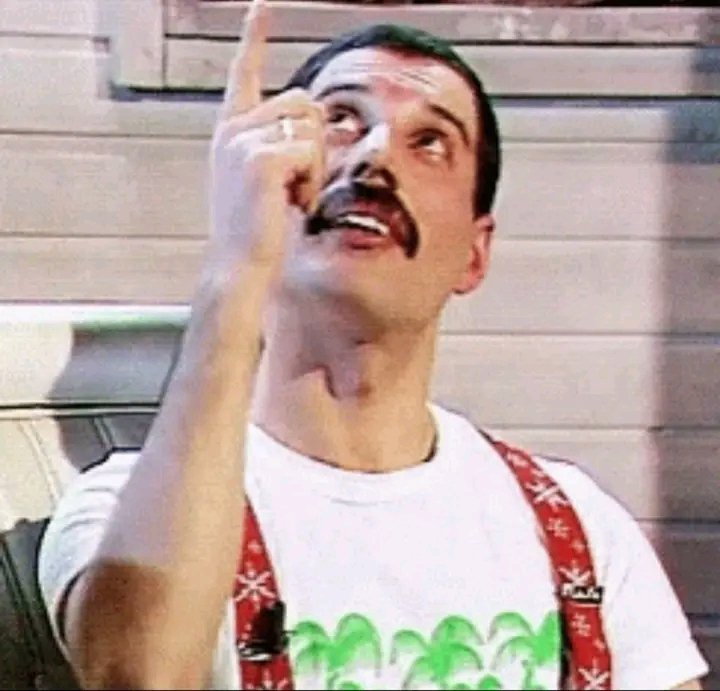“‘When I’m Dead, Who Cares? I Don’t’: Freddie Mercury’s Haunting Honesty in His 1985 Munich Interview with David Wigg”
In 1985, at the height of Queen’s fame and during one of the most creatively intense periods of his life, Freddie Mercury sat down for a revealing interview in Munich with journalist David Wigg. What emerged from that conversation wasn’t just talk of music or fame—it was a glimpse into the private, philosophical mind of a man who was already contemplating mortality. With disarming candor, Freddie said, “When I’m dead, who cares? I don’t. ‘He’ is looking after me.” It was a striking, almost offhand remark, but one that would resonate more deeply as the years unfolded.
At the time, few knew the true gravity of his words. Freddie was still publicly the flamboyant showman—bold, brash, commanding stadiums with his voice and presence. But behind the scenes, Mercury was increasingly reflective, wrestling with themes of impermanence, isolation, and spiritual reckoning. Munich had become a kind of personal refuge for him, a place of both excess and introspection. It was there, amid the city’s underground clubs and its creative energy, that he recorded much of Mr. Bad Guy, his first solo album, and quietly nurtured some of his most personal work.
The 1985 interview is poignant in hindsight. Freddie’s reference to “He” is open to interpretation—was he speaking of God, fate, or some unknowable force? Mercury was never one to box himself into conventional beliefs. Raised in a deeply spiritual Parsi Zoroastrian household, he rarely discussed religion openly, yet moments like this hinted at a quiet acceptance of forces beyond his control. There’s a trace of fatalism in his voice—not despair, but rather a kind of freedom in surrendering to the inevitable.
By that point, Freddie had likely already been diagnosed with HIV or at least suspected he was ill, though he kept it private even from many close to him. In that light, his words carry more weight. “Who cares?” wasn’t indifference—it was defiance. A rejection of fear. Freddie Mercury refused to let death define his life. He was determined to burn brightly, to live loudly, to love fully. That courage, masked in wit and bravado, became a core part of his legacy.
The interview also revealed Mercury’s complex relationship with fame. He had the world at his feet, yet often felt deeply alone. The flamboyant stage persona was only one side of him; offstage, he was shy, guarded, and increasingly contemplative. His words to Wigg offered a glimpse of the man behind the myth—a man aware that time was finite, yet still choosing joy, art, and connection over fear.
When Freddie Mercury died in 1991, just six years after the Munich interview, the world mourned the loss of a once-in-a-generation talent. But perhaps his own words best captured his attitude toward that moment. “When I’m dead, who cares? I don’t.” It wasn’t cynicism. It was liberation. He had already made peace with the unknown, trusting that whatever—or whoever—came next was “looking after” him.
Today, that brief moment in a Munich hotel room feels like a quiet prophecy—one that reveals not just the fearlessness of Freddie Mercury, but the fierce humanity that made him unforgettable.
